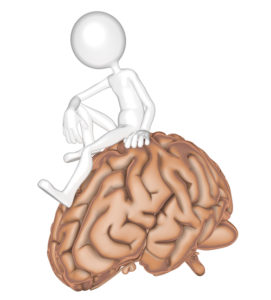Stress and Your Clutter
Thanks to Cindy Bernstein of Aim4Order for this episode of Tips from the Pros on stress and your clutter.
 Psychologist Sherrie Bourg Carter said in an article in Psychology Today, “Clutter can play a significant role in how we feel about our homes, our workplaces, and ourselves. Messy homes and workspaces leave us feeling anxious, helpless, and overwhelmed. Yet, rarely is clutter recognized as a significant source of stress in our lives.”
Psychologist Sherrie Bourg Carter said in an article in Psychology Today, “Clutter can play a significant role in how we feel about our homes, our workplaces, and ourselves. Messy homes and workspaces leave us feeling anxious, helpless, and overwhelmed. Yet, rarely is clutter recognized as a significant source of stress in our lives.”
Touching causes an emotional attachment, and that makes us attached to the things around our homes. The pain of giving up something reaches the anterior cingulate cortex part of the brain. It’s the same place associated with physical pain, so the pain you feel when giving up your belongings is real.
That’s how we are attached to our clutter, but how do we take that information and use it to declutter? It may take a bit of bravery, but once you start, the momentum will carry you along your way.
How to get started
Take baby steps by organizing a small area first. Once you finish that area, go to the next small area. Set up recycling, donation and trash bags for sorting. Don’t let the donation bag sit around. Take it to a donation center right away or it too will become clutter. When you are finished and see that organized area, you will feel instant gratification and the effects of dopamine.
“Dopamine increases when we are organized and finish tasks – regardless if the task is small or large. So, don’t allow your brain to worry about things that need to be done. Instead, write these tasks down and then check them off one at a time. It’s been shown that it’s more satisfying to the brain’s dopamine levels when we physically check something off of our to-do list. Also, write down and check stuff off regardless if you can mentally remember the tasks.” Psychology Today
As you gradually change your organizing habits, the stress level will go down. You’ll feel more relaxed and happy when you are at home. If that’s too much for you to handle, contact me for help.





Recent Comments